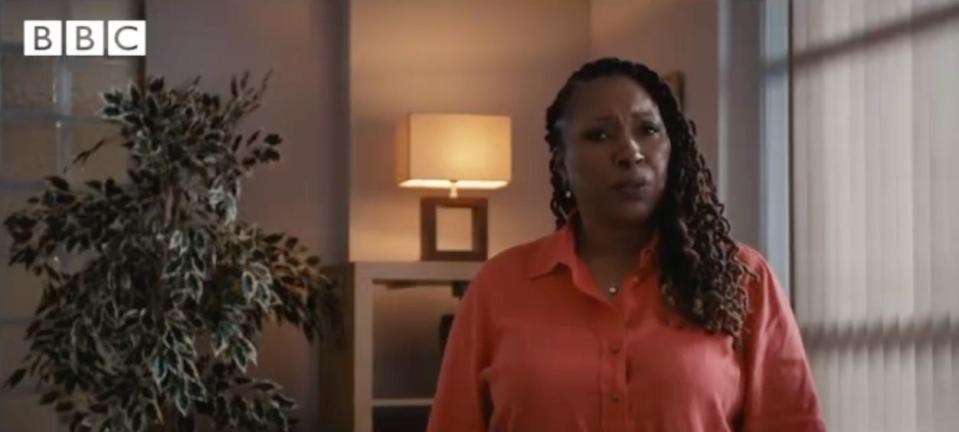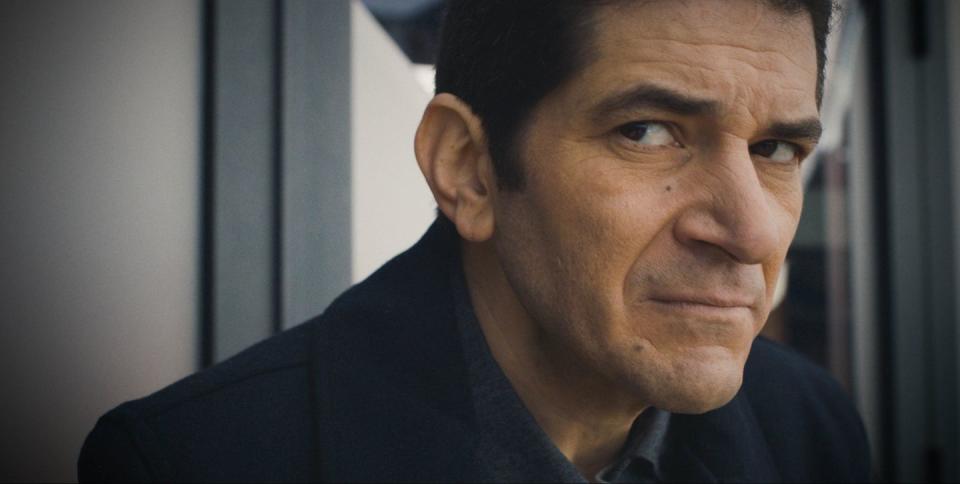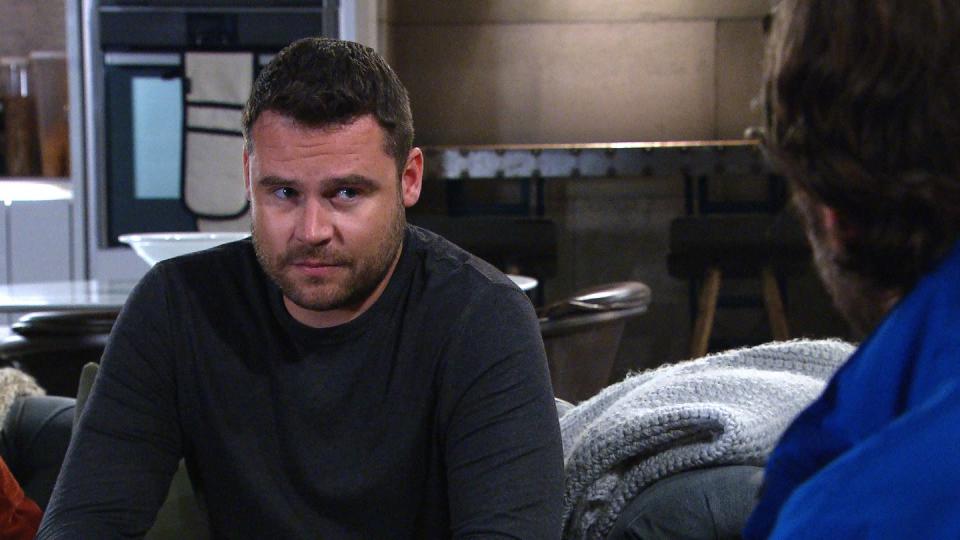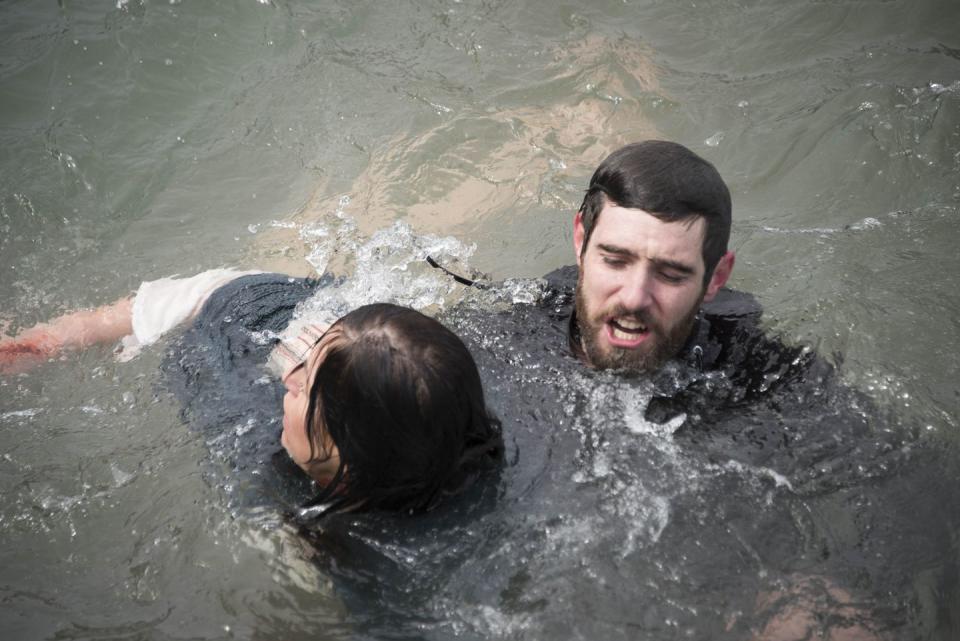The BBC's new soaps are a big risk for the broadcaster

- Oops!Something went wrong.Please try again later.
- Oops!Something went wrong.Please try again later.
- Oops!Something went wrong.Please try again later.
The soap world is getting a shake-up. BBC bosses recently surprised many in the industry by announcing plans to launch two new long-running dramas, which will be produced over the next three years.
The announcement came as part of the corporation's wider pledge to move key staff, departments and programmes outside of London in order to be more reflective of the UK as a whole.
Little more is known about the new dramas at this early stage, but the Beeb has confirmed that one will be based in the north of England. The other will be from one of the nations – Scotland, Wales or Northern Ireland.
While the launch of new soaps is obviously welcome news to fans of the genre, it's also fair to say that BBC chiefs are making a big gamble. So, why is it such a risky move?
Out with the old, in with the new
The BBC has faced budget challenges in recent years. In February, the corporation confirmed that it needs to make spending cuts of £408 million in 2021, which will affect its programming and services.
In this context, it's no surprise that launching two costly new soaps comes with a casualty. At the start of June, the Beeb confirmed that Tuesday-night staple Holby City is being axed after 23 years on the air.

While bosses at the broadcaster haven't directly linked Holby's unfortunate fate to the launch of the new soaps, it did offer a hint by explaining that dropping the show "reflects the BBC's commitment to make more programmes across the UK and to better reflect, represent and serve all parts of the country".
As with all soaps, Holby City's audience has declined over the years, but it still has a loyal following of over two million viewers who tuned in every week.
Boosting an existing soap in the ratings is far easier than launching a whole new one from scratch, so it's certainly a bold move to let Holby bow out without any guarantees that a fresh show can build up the same devoted following.
The competition
While the wider BBC wants to stop being so London-centric, it's worth noting that the soap world itself doesn't really have this problem.
EastEnders, Casualty and Holby City are the only soaps which are set in the south of England. Casualty is also filmed in Cardiff, which creates jobs for production crew based in Wales.

Northern soap fans are already pretty well-represented by kingpin Coronation Street, the ever-popular Emmerdale and Channel 4's youth-focused drama Hollyoaks. We've also seen soap-style shows like Waterloo Road and Ackley Bridge set in the north over the years.
Much has been made in the tabloid press about how the BBC hopes to rival Corrie and Emmerdale with its new northern drama.
While this is likely to just be tabloid hype, the BBC may struggle to find its USP in an already-crowded market, with successful northern soaps already on the air being enjoyed by millions of viewers each night.
Declining ratings
Soaps remain some of the most-watched programmes on TV, but they're also often seen as a genre in a slow decline.
In 2018, a report commissioned by Ofcom revealed that falling ratings for shows like Coronation Street, EastEnders and Emmerdale were driving an overall decline in mass audience figures for television.

The combined average audience for Coronation Street, EastEnders and Emmerdale had dropped by 1.8 million viewers between 2007 and 2017 and audiences have fallen further in recent years.
With this context, it's certainly a risk to take a gamble by launching two new soaps and hoping to attract viewers in big enough numbers to justify the investment.
We don't want to talk down the soaps, though. While blockbuster shows like Line of Duty and Bodyguard can bring in much higher audience figures, it's often forgotten that these shows are expensive to produce and only appear on our screens for limited runs.
In comparison, shows like Corrie and Emmerdale are reliable hits with audiences week in, week out, and they still regularly dominate ITV's top ten list of programmes each week. With purpose-built sets and limited location filming, they're also cheaper to make than many other shows.
The BBC arguably hasn't had as much luck in recent years, with EastEnders going through regular rocky patches and shedding viewers at a faster rate than its rivals.
With EastEnders now firmly the "third soap" behind Corrie and Emmerdale, perhaps it's no surprise that the Beeb bosses want to try out a different show to see if it can better compete with its ITV rivals again.
A chequered history
The remaining soaps on the air have all been running for decades and have strong legacies. Other soaps have launched much more recently, but they've all failed.
The last successful soap launch on a national scale was BBC One's Doctors, which began in 2000 and still reliably wins its daytime slot on the channel.
Other new soaps have often ended in embarrassment for the networks. A Crossroads reboot on ITV lasted for just two years between 2001 and 2003.
Fellow ITV soap Night and Day also came to an end in 2003 following a two-year run, having been dropped by the broadcaster for low ratings.
BBC One tried out a new Aussie soap called Out of the Blue in 2008 after losing Neighbours to Channel 5. It shunted the show off to BBC Two after just a week, citing low ratings.

An EastEnders spinoff called Redwater, centring on Kat and Alfie Moon, also arrived on the Beeb in 2017 to much excitement. The show was dropped after just one series and ended on a frustrating cliffhanger, which was never resolved even when the popular characters moved back to the main show.
The list is almost endless, with Family Affairs, Echo Beach, Headland and Red Rock also on the list of axed soaps.
Part of this tough soap history can also be seen as a sign of the times. TV bosses (and their advertisers) want to see instant results when a new show launches and can get axe-happy if this fails to come to fruition.
Shows like Corrie and EastEnders also took a while to bed into the schedules, but were given time and space by the Powers That Be to build a following.
If the Beeb really wants to make a success of its ambitious new shows, perhaps its biggest challenge will be a test of patience. Will it give the new soaps a fair chance?
In the latest edition of Digital Spy Magazine, we reflect on the 50 most groundbreaking soap characters of all time. Read every issue now with a 1-month free trial, only on Apple News+.
Interested in Digital Spy's weekly newsletter? Sign up to get it sent straight to your inbox – and don't forget to join our Watch This Facebook Group for daily TV recommendations and discussions with other readers.
You Might Also Like

